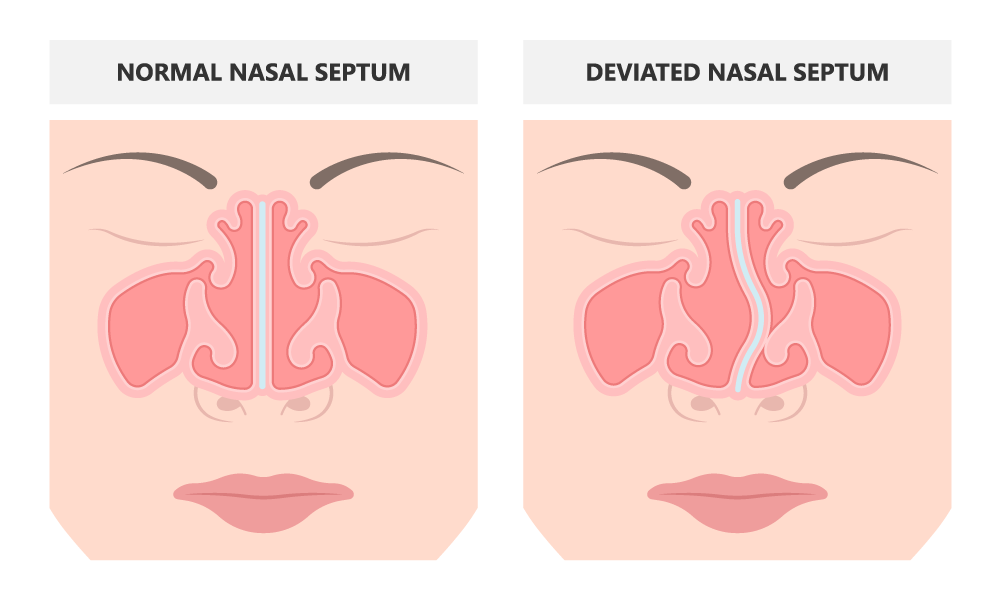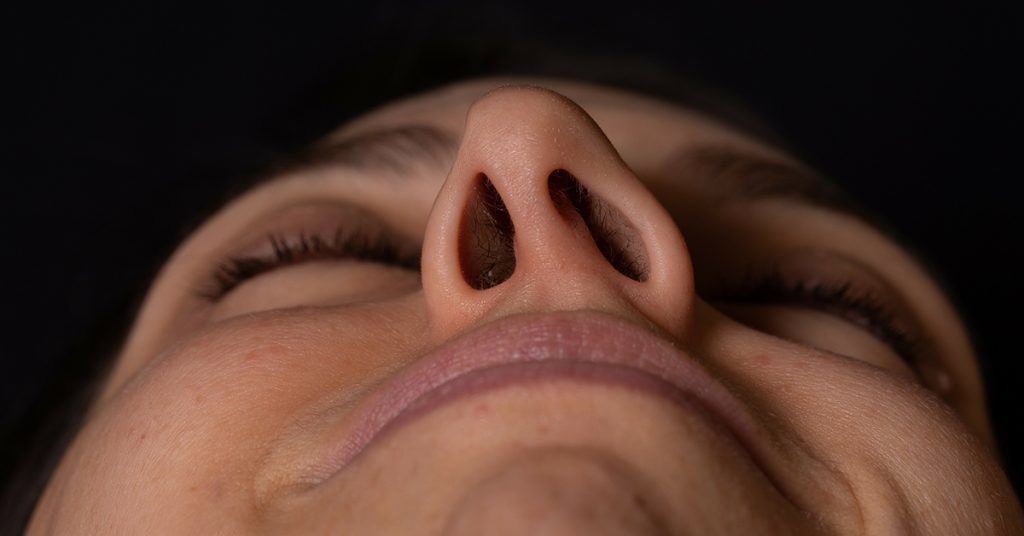Do you struggle with persistent nasal congestion, nosebleeds, and breathing issues? While it’s easy to dismiss these symptoms as a common cold, allergy, or “just one of those things,” these symptoms could indicate a deviated septum.
What is a deviated septum?
A deviated septum is a condition in which the cartilage that divides the nasal passages (the septum) is crooked or uneven. As a result, one of the nasal passages is narrower than the other, sometimes causing uncomfortable symptoms. While some people are born with the condition, others develop a deviated septum following an injury. It’s not uncommon for a car accident, fall, or sports injury to lead to a deviated septum.
What are the symptoms of a deviated septum?

The symptoms of a deviated septum are often confused with symptoms associated with respiratory infections and other nasal issues. As such, we recommend you seek a prompt diagnosis if you notice any of the following symptoms of a deviated septum:
- Difficulty breathing: Misalignment of the nasal passages can make it harder to pull air through one half of your nose, affecting your ability to breathe. If you notice that one nostril feels less clear than the other, you may have a deviated septum.
- Nosebleeds: Blocked nasal passages can reduce the amount of moisture in your nose and dry out your nasal membranes. In the long term, this can increase your chances of nosebleeds.
- Snoring and sleep problems: As well as affecting your breathing during the day, a deviated septum could significantly affect your breathing at night. Restricted nasal passages can cause loud snoring and impact your ability to stay asleep. Some people with deviated septa develop sleep apnea – a potentially serious sleep disorder in which breathing stops completely for seconds at a time. If you feel sleepy during the day, it’s worth seeking an evaluation from one of our specialists.
- Nasal congestion: People with deviated septa often report having a “stuffy” head and nasal congestion. This pressure build-up can cause a host of secondary symptoms, including headaches, facial pain, toothache, and more.
- Sinus infections: A deviated septum can cause repeated sinus infections, resulting in mucus build-up in the nose and throat, headaches, and facial pain.
- Preference for sleeping on a specific side: People with deviated septa often sleep on a specific side to optimize their breathing and make the most of their wider nasal passage.
- Dry mouth: A severely deviated septum could encourage you to breathe through your nose, causing a dry mouth.
What treatments are available for treating a deviated septum?
While deviated septa can cause a host of uncomfortable issues that may affect your quality of life, they are highly treatable. Those with mild symptoms often treat their deviated septum with nasal steroids and decongestants. However, the most effective treatment for the condition is a type of nose surgery called septoplasty.
If you’re wondering whether you have a deviated septum (and what to do about it), Oakdale ENT Clinic is here to help. Call us on 763-233-5755 or request an appointment online.
